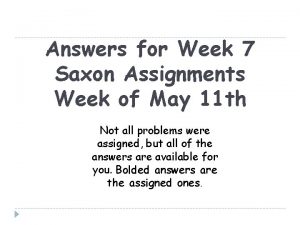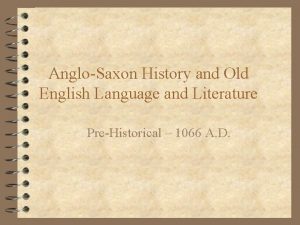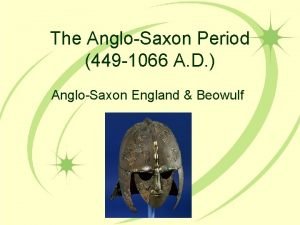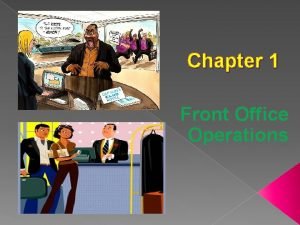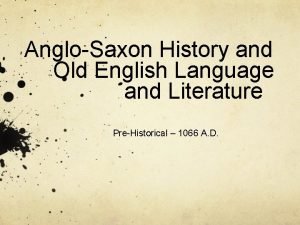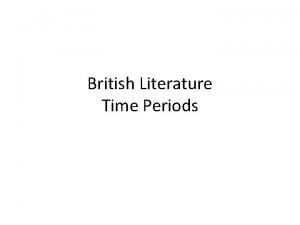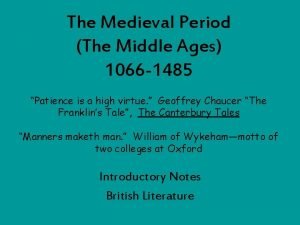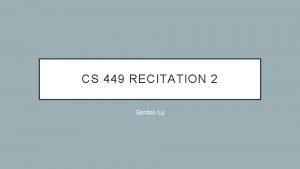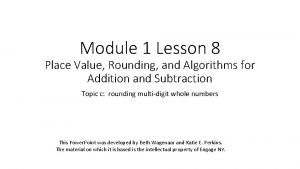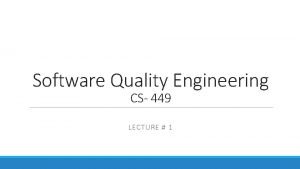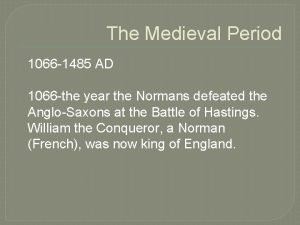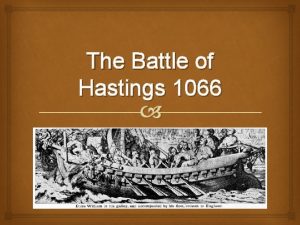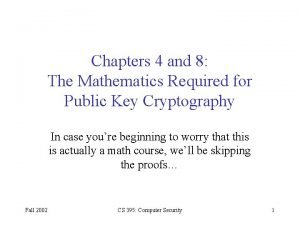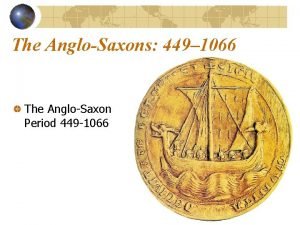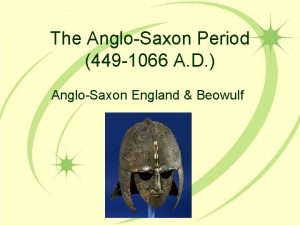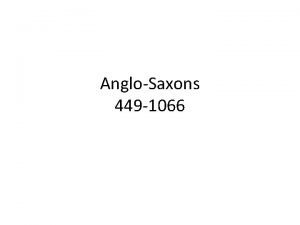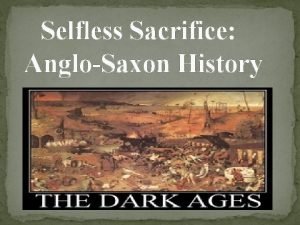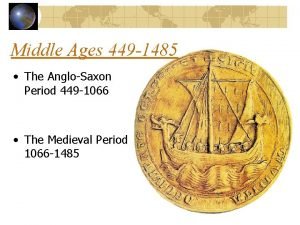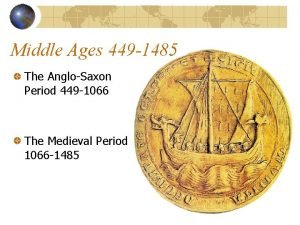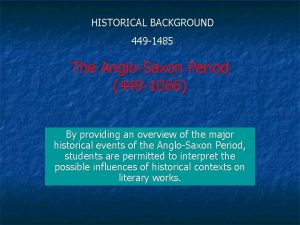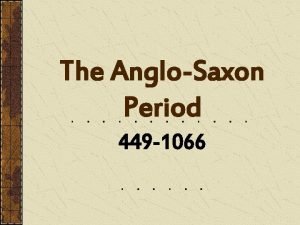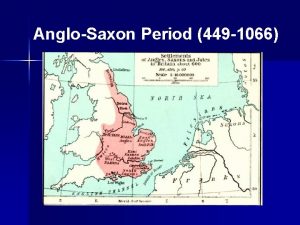The AngloSaxon Period 449 1066 Arrival of AngloSaxons















- Slides: 15

The Anglo-Saxon Period 449 -1066

➔ Arrival of Anglo-Saxons in Britain signalled beginning of English lang. ➔ Invaded land became known as “Angles’ land” or England. ➔ New lang. developed = “Angle-ish” or English. ➔ Although language would change, it was precursor to English we speak today.

➔ Society developed from kinship groups led by strong chief. ➔ People farmed, maintained local gov’ts, and created crafts (metal). ➔ Christianity replaced old warrior religion, linking England to Europe. ➔ Monasteries = centers of learning and preserved works from old oral tradition.

Whom did the Angles and Saxons conquer? (Britain Before the Anglo-Saxons) (The Celts) ➔ Among Celts lived group called Brythons, now Britons, who settled what is now Britain.

➔ Religion = form of animism (Latin for spirit. ) ➔ Saw spirits everywhere: rivers, trees, fire, thunder, etc. ➔ Spirits or gods controlled all aspects of existence = had to be constantly satisfied. ➔ Priests, called Druids, acted as intermediaries between gods and people. (Study 20 years)

➔ Druids responsible for religious rituals/memorized & recited long, heroic poems to preserve past. ➔ Druid = “knowing the oak tree” ➔ Oak trees and mistletoe sacred = rituals performed in oak groves ➔ Druids responsible for educating young.

Anglo-Saxon Conquest ➔ Brought own pagan beliefs ➔ Crude, barbaric people ➔ Grim view of life due to ever- present dangers of death by accident or warfare ➔ Every human life in hands of fate ➔ Hedonistic: pleasure seeking, self gratification

➔ Worshiped ancient Germanic gods: Tiu, god of war & sky; Woden, chief of gods; and Fria, Woden's wife & goddess of home. ➔ These were abandoned with coming of Christianity, but names survive in our words Tuesday, Wednesday, and Friday.

The Bards ➔ Anglo-Saxon communal halls provided shelter, meeting place, & space for storytellers. ➔ Storytellers (bards) sang of gods & heroes to strumming of harp. ➔ NOT regarded as inferior to warriors. (Just as important!)

Christianity/Literature ➔ Church brought 2 elements missing since the Romans: education & written ➔ literature. ➔ Christian leaders established schools (Canterbury & York) & supervised learning in monasteries. ➔ Monks worked as scribes, recording & duplicating manuscripts/books written by hand.

➔ From such monastic training emerged Northumbrian monk later considered “father of English history. ” ➔ Today known as the Venerable Bede (673 -735). ➔ Most famous volume (A History of the English Church and People) offers clearest account of early Anglo-Saxon times.

➔ Christianity tempered but didn't destroy Anglo-Saxon spirit. ➔ Glimpses of earlier world lived on in epics - Beowulf, long narrative poem that depicted great battles between Anglo. Saxon warriors & superhuman monsters. ➔ Anglo-Saxons remained hardy, but were about to endure an invasion by the Vikings.

Anglo-Saxon Literature ➔ Runes – Anglo-Saxon alphabet; used until Latin superseded it. ➔ Began with Druids ➔ Bards, also called scops, recited poetry.

➔ Poems followed formal, rigid pattern - easier to memorize, gives lyrics sing-song effect. ➔ Caesura – midline pause ➔ Alliteration – repetition of consonant sounds ➔ Kenning – metaphorical name

Beowulf ➔ Story of great pagan warrior renowned for courage, strength, and dignity. ➔ Epic – long, narrative poem ➔ Because it is 1 st work composed in English, it is national epic of England. ➔ Author unknown
 The anglo-saxon period 449 to 1066 answers
The anglo-saxon period 449 to 1066 answers Anglosaxon period
Anglosaxon period Anglo saxon runes
Anglo saxon runes Room rack in front office
Room rack in front office Anglosaxon history
Anglosaxon history The old english period 450 to 1066
The old english period 450 to 1066 Middle ages 1066 to 1485
Middle ages 1066 to 1485 Cs 449
Cs 449 Cpsc 449
Cpsc 449 Rounding money chapter 1 lesson 8
Rounding money chapter 1 lesson 8 Davies v waldron
Davies v waldron Grčko-persijski ratovi
Grčko-persijski ratovi Cs 449
Cs 449 The middle ages 1066-1485 unit test
The middle ages 1066-1485 unit test Fyrd 1066
Fyrd 1066 1970 mod 1066
1970 mod 1066
